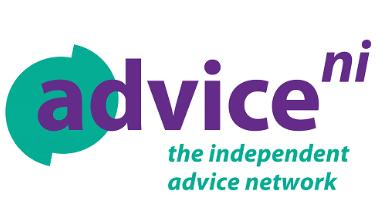Debt & Mental Health
Our emotions and personal finances are often intricately linked, and this is especially true when debt is concerned. Debt problems are commonly associated with anxiety and depression, and anyone dealing with debt can benefit from taking positive action to support their emotional health at the same time.
Mental health issues cover a range of conditions, including anxiety and depression, schizophrenia, phobias and bipolar disorder to name just a few. Mental health issues can be for short periods of time or can be a lifetime condition. Mental health conditions can change over time, for some conditions even from day to day.
Living with a mental health issue does not automatically mean that you will find it difficult to deal with your debts, but it can make things more difficult. Being in debt can be stressful but there may be solutions and options to help deal with it. A professional debt adviser is impartial, non-judgemental and their job is to assist you in overcoming your situation and empower you to take control of your finances once again.
If you are feeling overwhelmed and struggling to deal with your debts then it is never too late to seek professional advice. There are various options that would be available to you to ease your financial stress and our debt advisers are non-judgemental and here to help. Contact us for advice.
Seeking debt help
It is normal to feel nervous or embarrassed discussing your debts and health issues, and to discuss both can be overwhelming. At Advice NI all of our advisers are qualified and experienced and we will never share any of your information unless you give us permission to do so.
When turning to us for advice, you have a number of different options that can make the experience less stressful, these include:
- you can remain anonymous
- Contact us by telephone, face-to-face or email – whichever is your preference
- With your permission, we can contact creditors on your behalf
- Alternatively, we can provide template letters for you to contact your creditors directly
- If you give us permission, we can speak to a friend or relative about your options so they can help you decide, or they can be present with you in any meetings
- We can help put you in touch or refer you to specialist organisations and services that can help you get advice and assistance for any mental health issues you have
- If at any point you feel overwhelmed you can stop receiving advice from us, or put it on hold until you feel less stressed
It is always your decision to share information about your mental health condition with us. If you do, it will help us to tailor the conversation and our advice to suit your circumstances. We will always ask your permission before we add any information shared with us to your client record or before we share any information with any other organisation. We will never share information without your consent.
Breathing space
We can ask your creditors for a period of ‘breathing space’. This gives us time to ensure that you receive all the information you need and gives you time to understand it.
We will always attempt to get as much breathing space as we can but it is normally for a minimum of 30 days.
If you feel overwhelmed with the amount of information or help you are receiving, the adviser may suggest dealing with your situation in steps over several conversations. We will deal with the most urgent matters first, and we will try to reduce the stress of any issues for you.
Telling your creditors about any mental health issues
It will always be your decision to tell your creditors about any mental health issues you are experiencing. It most instances it does help with any negotiations if you do, as your creditors may be more sympathetic to your financial problems.
If you have a mental health condition you will be protected to an extent by the Equality Act 2010 which says that your creditors must make reasonable adjustments to help you. Creditors will also have rules and guidelines to follow when dealing with clients who need extra support due to their mental health issues.
Options available to your creditors to help you deal with your debt and mental health issues include:
- a hold on your account for a short period;
- To only contact you at set times of the day;
- To only use certain contact methods, such as by letter only and not use phone;
- Allowing you extra time to gather information;
- Agreeing not to pass your debt to a debt collection agency; and
- Have specialist staff dealing with your case.
You may also want to give permission to a third party, such as a relative or friend, to deal with your creditors. Your creditors do need your permission to discuss any details with another person however. Some creditors may agree to take consent over the phone, but others will want it in writing.
Debt and Mental Health Evidence Form (DMHEF)
The Debt and Mental Health Evidence Form (DMHEF) is a standard form that has been produced by the Money Advice Liaison Group and is recognised by creditors as evidence that someone needs additional assistance in dealing with their debts due to their mental health issues.
The DMHEF is completed by health and social care professionals in order to provide evidence of your mental health circumstances. It was designed to make it easier to collect this information for you and your creditors, and to make it easy for a health and social care professional to know what information is required by a creditor. There should be no cost for completion of this form.
The form will give an overview of your mental health situation. It helps your creditors to assess what support they should offer you when dealing with you and your debts, and how to deal with you going forward.
If you are seeking advice on your debts and you feel that the DMHEF will assist you, contact us for advice.
Once the form is completed by a health or social care professional, it can then be photocopied and circulated to all your creditors. This does not mean it is guaranteed to be accepted by your creditors, but most large banking institutions recognise it, are familiar with its content and some were involved in its design. The DMHEF is also recognised by the Financial Conduct Authority, the organisation that regulates the credit industry, so providing this form is a good way of strengthening your case when dealing with your creditors.
Debt write-off when suffering from mental health
If your circumstances are unlikely to improve then you have the option of asking your creditors to write off the debt. It can be difficult to convince a creditor to write-off a debt and it is usually seen as a last resort, where there are no assets or money to pay the debt.
There are guidelines contained within the Good Practice Awareness Guidelines for Helping Consumers with Mental Health Conditions and Debt which is produced by the Money Advice Liaison Group (MALG) who also produced the Debt and Mental Health Evidence Form (DMHEF). These guidelines detail that creditors should consider writing off unsecured debts when mental health conditions are long-term and there is little chance of the debt being repaid.
Ensuring your financial difficulties do not deteriorate
When suffering with mental health issues it can be more difficult to manage money. Some conditions can lead you to take out further credit that you cannot afford or lead you to spend money on things that you don’t need. This can increase your debts and make payment arrangements with your creditors difficult to organise.
If there are circumstances where you would prefer not to obtain further credit due to your mental health condition it could be helpful to add a Notice of Correction to your credit reference file.
A Notice of Correction is a statement of up to 200 words that allows you to explain your circumstances to potential creditors. Once you add a Notice of Correction to your credit report, any application for credit must be read by a person and not given an automatic decision by a computer. This can be useful if you are likely to make unnecessary applications for credit, as it gives you time to reconsider and the credit provider can read your notice of correction so they can assess whether you actually need the credit you have applied for and contact you before agreeing to the request.
A notice of correction can be added or removed at any time. Only organisations that will check your credit reference file will see the notice, so any existing creditors will not have knowledge of any information in your notice of correction regarding your mental health issues if you do not want to disclose this to them.
For more information & a list of useful contacts, click here.












































































































